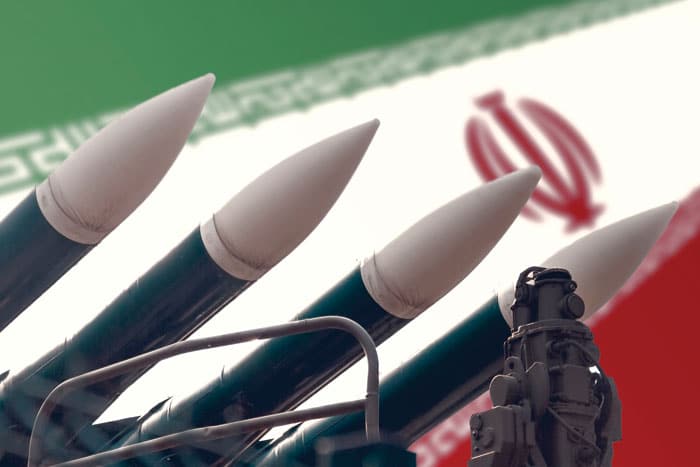 shellexx/Getty Images
shellexx/Getty Images What does one do when a strategy fails to achieve its goals? To put it simply, there are four options: admit failure and give up; persist in the hope that time will be on your side; up the ante if there’s a way to do such thing; use a different tactic to achieve the same strategic goal.
As Iranian negotiators are slated to meet with their European and Chinese counterparts to talk about Iran’s nuclear program, Israel tends to see the third option as the right option, and the U.S. tends to support the fourth option. What’s option three? More pressure. What’s option four? Look for a negotiated solution. What’s Israel’s best argument in favor of its preferred way? Eyal Hulata, Israel’s NSC Chief, was in Bahrain earlier this week and explained: “Iran won’t make concessions only because we ask them nicely. They don’t work like that.” What’s the U.S.’s best argument in favor of its preferred way? President Biden’s senior Middle East adviser Brett McGurk was at the same session with Hulata. He explained that pressure failed to work, and consequently negotiation is the best available option.
Israel is right: Iran “doesn’t work like that.” The U.S. is right: the pressure tactic did not achieve its goal. The debate between the two countries and clearly, there is a disagreement, even though the Bennett and Biden administrations handle it more politely than the Netanyahu and Obama administrations—is profound because it involves not just tactics but also the question of end goal. While Israel stresses the need to prevent Iran from having a “nuclear breakout” capability, the U.S. is much more modest and keeps using the phrase “preventing Iran from getting a nuclear weapon.”
In fact, when we consider the strategies of the two countries on the issue of Iran, the way they handle each other is of no less consequence than the way they handle Iran.
So, there are two different tactics and two different goals and two administrations who make an effort to handle these disagreements delicately. In fact, when we consider the strategies of the two countries on the issue of Iran, the way they handle each other is of no less consequence than the way they handle Iran. And here, we see a similar tactic to achieve a different goal: the tactic is to play it nice. The strategy of Israel is to gradually convince the U.S. that no pressure means a nuclear Middle East (Iran will not be the only country to go nuclear, other countries will follow), and in the meantime, get more of the equipment it needs to prepare for a military confrontation. The strategy of the U.S. is to keep Israel satisfied (among other things, by giving it ammunition) and thus less prone to play a disruptive role as negotiation attempts are being made.
This is where we are now. But in a few weeks, we will be in a different place. Either negotiations move forward in a fruitful way (unlikely), or in a way that’s not fruitful but still half satisfactory (unlikely), or in a way that’s satisfactory enough for the U.S. but not Israel (much more likely), or in a way that’s not satisfactory to either country (also likely). What happens then? That’s an interesting question—especially so if we consider the history of the confrontation with Iran over its nuclear ambitions.
If you stop to think about it, the most consistent feature of the ongoing crisis with Iran over its nuclear ambitions is that there’s never a crisis. There’s never a moment of truth that demands action, or a dramatic decision, now. There is never a Berlin airlift moment, or a line-in-the-sand Iraq moment. And thus, no American or Israeli has ever been in a situation in which he/she had to take the leap of real gamble. Kennedy had to decide—or see Soviet missiles become operational in Cuba. Prime Minister Olmert had to decide—or see a Syrian nuclear facility turn “warm.” Iran is successful in being elusive and shadowy. It never presents its enemies with a make-or-break decision, never confront them in ways that could potentially result in a big gamble. And it is strong.
It’s strong enough to make America consider a confrontation too much of a burden. Strong enough to sow doubt as to whether Israel can do it on its own. In this sense, it is winning. And as it takes its place at the negotiating table it will do it as someone who’s winning. And this brings us full cycle to where we started in this article: What does one do when a strategy fails to achieve its goals?
A week’s numbers

Once again, the Kotel compromise is on the public radar because of a court deadline to which the government must respond (by the time you read this, it probably already responded, or asked for extension). Do Jewish Israelis support the compromise? That depends on what you ask. Here is one way:
A reader’s response:
I’m not sure they did it because of readers. I’m not important enough, or megalomaniac enough to think that they did it to spite me. But two days after writing here why Israel shouldn’t limit the term of a Prime Minister to eight years, the cabinet approved the legislation whose aim is to do exactly that (the law still need to pass the Knesset).
Shmuel Rosner is senior political editor. For more analysis of Israeli and international politics, visit Rosner’s Domain at jewishjournal.com/rosnersdomain.






















 More news and opinions than at a Shabbat dinner, right in your inbox.
More news and opinions than at a Shabbat dinner, right in your inbox.